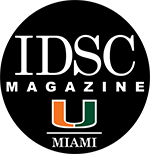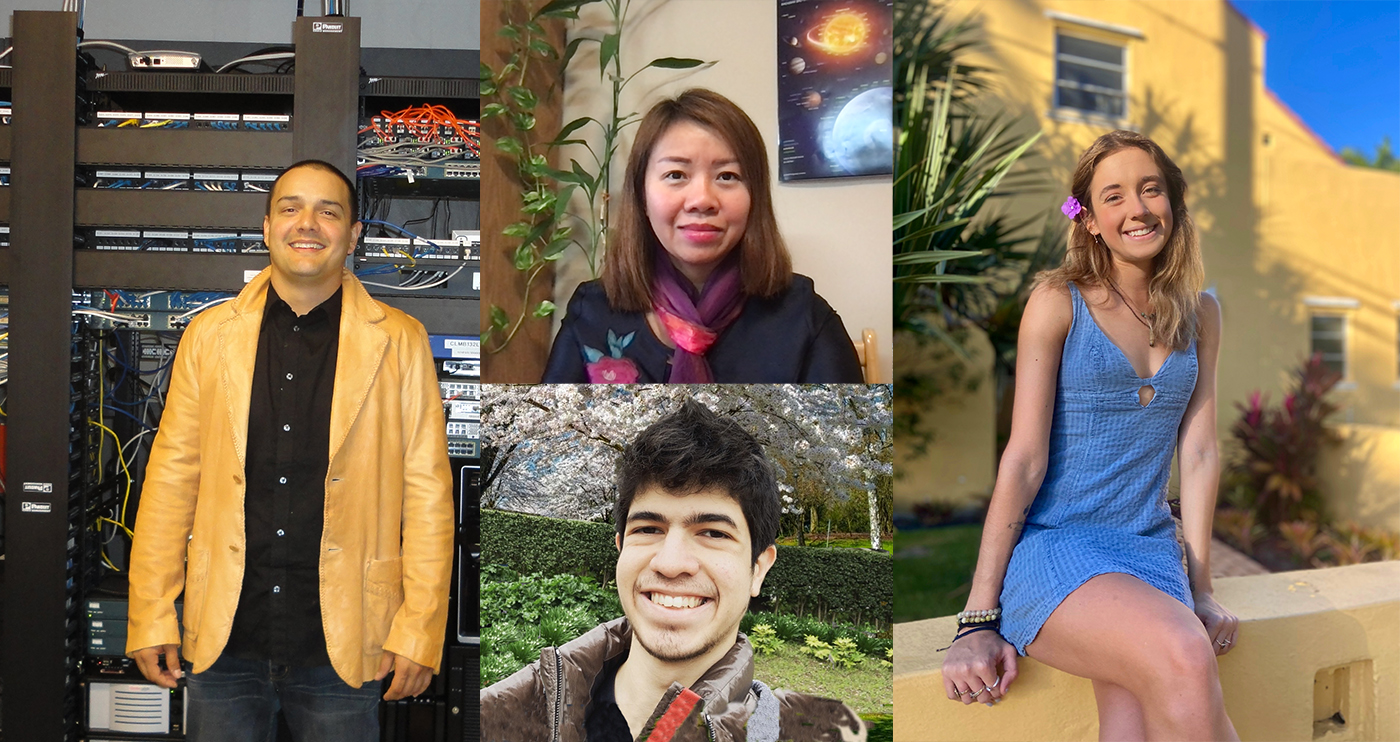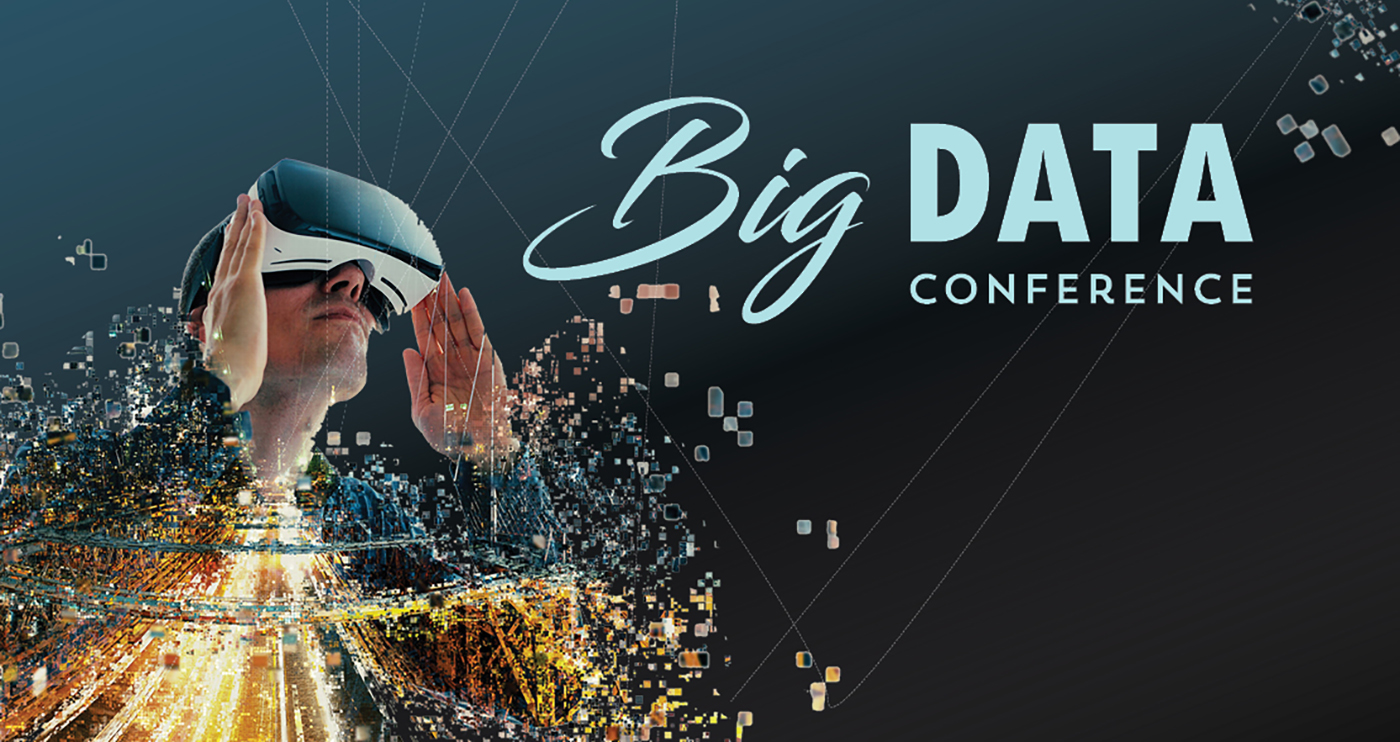From endangered whales to Alzheimer’s disease, concrete durability, and the brain-computer interface, four University of Miami graduate students will apply advanced data science and computing tools to their multidisciplinary research projects selected for the IDSC Fellows Program for the 2021-22 academic year.
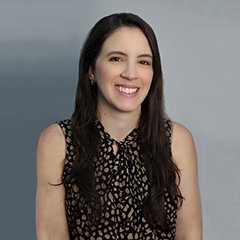 As the 2021-2022 IDSC Fellows, Ashley Cook, Julian Dallmeier, Kevin Davis, and Mingyue Wu will work closely with multiple mentors—from their field plus an IDSC faculty mentor—to develop their computational skills and expand their research experience before presenting their work at a capstone spring symposium.
As the 2021-2022 IDSC Fellows, Ashley Cook, Julian Dallmeier, Kevin Davis, and Mingyue Wu will work closely with multiple mentors—from their field plus an IDSC faculty mentor—to develop their computational skills and expand their research experience before presenting their work at a capstone spring symposium.
“Our goal is to inspire a new generation of leaders in data science to cross traditional boundaries of disciplines,” said Giannina Bianchi, IDSC’s Engagement and Outreach Manager, who introduced the new IDSC Fellows at a December 7, 2021 webinar launch event. “Through IDSC they will have access to our advanced computer resources in their research.”
Here are the projects of the four students, who constitute the eighth cohort for the IDSC Fellows Program:
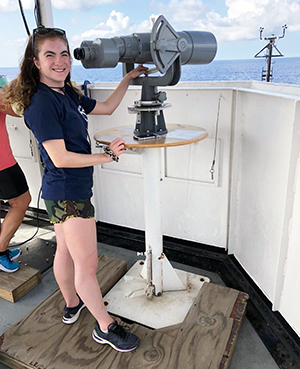 Cetacean Acoustics | Ashley Cook
Cetacean Acoustics | Ashley Cook
As a doctoral student in the Marine Biology and Ecology program at the Rosenstiel School for Marine and Atmospheric Sciences (RSMAS), Ashley Cook is studying cetacean acoustics to detect Rice’s whales, an endangered species in the DeSoto Canyon off Florida’s west coast.
“With fewer than 100 Rice’s whales remaining, we need to learn more about their location and activities in their primary habitat,” said Cook. Currently, there are 17 hydrophone sites in the region that detect the “long moans and downsweep trains” of the whales and generate recordings. However, it is not feasible to manually review the recordings to identify individual animals—particularly against background noises such as passing ships.
For her project, “Detection of Rice’s Whale Calls in the Gulf of Mexico Using Passive Acoustic Data and Deep Learning,” Cook plans to develop a call detector for this baleen whale species that could also be applied to other long-term acoustic datasets.
Cook’s mentors are
- Elizabeth Babcock, PhD | Professor, Department of Marine Biology and Ecology, RSMAS
- Melissa Soldevilla, PhD, who leads the Passive Acoustic Monitoring program for the National Oceanic and Atmospheric Administration’s (NOAA) Fisheries.
- Gang Ren, PhD | IDSC AI + Machine Learning | Research Assistant Professor Department of Computer Science
- Mitsunori Ogihara, PhD | Professor, Department of Computer Science | Director, IDSC Workforce Development and Education | Cooper Fellow, College of Arts and Sciences | Site Director, NSF University of Miami CARTA
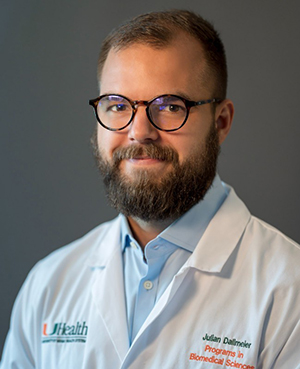 Alzheimer’s Disease Pathology | Julian Dallmeier
Alzheimer’s Disease Pathology | Julian Dallmeier
A neuroscience doctoral student, Julian Dallmeier hopes to gain new insights into Alzheimer’s disease by studying patterns in brain tissues. “Being named an IDSC Fellow is a great honor,” he said. “This program is a great opportunity for young scientists to learn more about data science in their disciplines.”
Dallmeier will apply feature extraction and clustering algorithms to study hyperphosphorylated tau and amyloid plaques—a hallmark of Alzheimer’s disease—in his project, “Spatial Clustering Analysis of Corpora Amylacea and Tau in the Hippocampus.” Using tissue samples from UM’s Brain Endowment Bank, Dallmeier will look at clustering patterns of plaque buildup and see if they can be correlated to genetic risk factors.
Dallmeier’s mentors are:
- William Scott, PhD | Professor, and Vice-Chair for Education and Training, Dr. John T. Macdonald Foundation Department of Human Genetics | Professor of Neurology and Public Health Sciences, UM Miller School of Medicine | Faculty Member, John P. Hussman Institute for Human Genomics (HIHG) | Executive Director, UM Brain Endowment Bank
- Mitsunori Ogihara, PhD | Professor, Department of Computer Science | Director, IDSC Workforce Development and Education | Cooper Fellow, College of Arts and Sciences | Site Director, NSF University of Miami CARTA
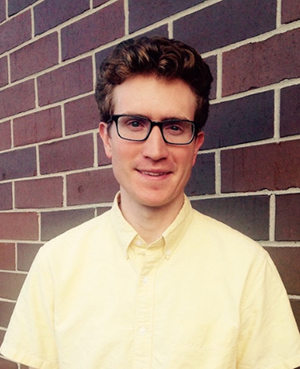 Brain-Computer Interface | Kevin Davis
Brain-Computer Interface | Kevin Davis
Kevin Davis, an M.D./Ph.D. student in the Biomedical Engineering program, will be applying IDSC’s Advanced Computing resources to improve the functions of an implanted brain-computer interface in a homebound patient with chronic cervical spinal cord injury.
“By using machine learning and classification and regression algorithms, I hope to expand the interface we have developed at the UM Brain + Machine Learning Lab,” said Davis. “This could be of great potential benefits to patients with neurological injuries or disease.”
Davis’s project, “Expanding Functional Control of a Fully Implanted Brain-Computer Interface,” involves capturing signals from the brain using a non-invasive technique called electroencephalography and sent to a computer on the patient’s wheelchair. Machine learning and deep learning algorithms would then be used to translate those commands from the brain into hand, wrist, and elbow movements.
Davis’ mentors are:
- Abhishek Prasad, PhD | Associate Professor, Department of Biomedical Engineering, College of Engineering
- Odelia Schwartz, PhD | Associate Professor, Department of Computer Science, College of Arts and Sciences | Director of Undergraduate Studies, Secondary Faculty in Biology | Principal Investigator, Brain + Machine Learning Lab
Concrete Durability | Mingyue Wu
 Mingyue Wu, a doctoral student in the Civil, Architectural & Environmental Engineering Department, is studying the problem of concrete “creep,” which shortens the lifespan of structures.
Mingyue Wu, a doctoral student in the Civil, Architectural & Environmental Engineering Department, is studying the problem of concrete “creep,” which shortens the lifespan of structures.
“Creep is the long-term deformation of concrete that is driven by sustained loads,” said Wu. “We know that how nanoparticles move under that stress depends on the structure of the local environment, but we don’t yet understand those patterns.”
Wu will apply machine learning techniques to molecular dynamics simulations in her project, “The Role of Cement Nanostructure on the Creep Behavior or Concrete.” She hopes to identify insights that will significantly enhance concrete durability.
Her mentors are:
- Luis Ruiz Pestana, PhD Assistant Professor, Department of Civil, Architectural, and Environmental Engineering, College of Engineering
- Melvin Ayala, PhD | IDSC Systems and Data Engineering, and Advanced Computing
Tags: 2021-2022 IDSC Fellows, Alzheimer's disease, Ashley Cook, brain-computer interface, concrete durability, endangered whales, Giannina Bianchi, IDSC Fellows, Julian Dallmeier, Kevin Davis, Mingyue Wu
